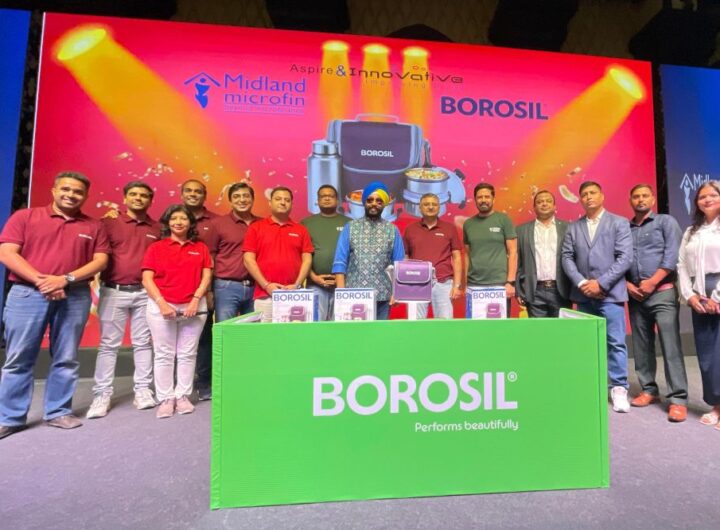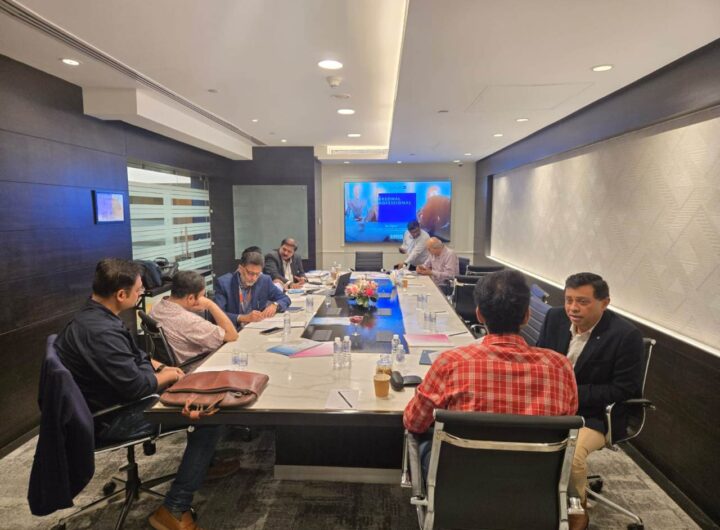In a joint whitepaper released by Kearney Consulting and Business Spend Management Platform EnKash, it is predicted that by 2030, India's business spending, which is currently between $6 and $7 trillion, is expected to reach $15 trillion. These include the investments made by large corporations, mid-market businesses (with a revenue of INR 5- 250 crore), and a start-up ecosystem that is expanding quickly. Hemant Vishnoi, Co-Founder EnKash added, “According to data from the Ministry of Corporate Affairs, the number of firms being registered each month has doubled over the last six years, which shows that India Inc. is moving in the direction of sustainable growth.”
This rise might be interpreted as a sign of the substantial amount of commercial activity occurring in India, which was recently recognized as the fifth-largest economy in the world. The financial exchanges between the numerous entities participating in a wide range of B2B interactions, from development and operations to procurement and compliance, will increase as India's business ecosystem develops. While the epidemic spurred the adoption of digital payments on both the consumer and business levels, end-to-end evolution, in the form of thorough automation and digitization of payments and payment processes – spend management – offers much higher benefit.
To review and analyze the entire flow of expenditures, including outgoing funds, order-to-cash procedures (accounts receivables), purchase-to-pay (accounts payable) cycles, recurring expenses, reputation management, savings, and growth, among others, spend management offers a much more comprehensive perspective. Two things determine how well expenditure management works. Digital adoption comes first, followed by operational effectiveness. In comparison, managing payables and expenses manually by SMBs and start-ups is a sluggish, paper-intensive procedure that frequently results in delays. The resulting inefficiencies are plain to see, bad vendor management that damages reputation, late payment penalties brought on by delays, and generally greater efforts made during audits to track the permission trail. To advance toward digital penetration and operational efficiency, firms want an end-to-end B2B spend management platform that is simple to use and configure.
SMBs (Small and Medium Businesses) can gain an overview of their finances using a business spend management tool and try to optimize them. EnKash, Asia’s first spend Management platform and rapidly expanding company in India, is one of the best instances of a spend management system. The company offers a variety of finance solutions, such as Payables & Expense Management, Receivables, Corporate Cards, and CardX, a plug-and-play cards issuing stack. The payables solution assists SMBs with vendor onboarding, the creation of approval hierarchies and payment processes for recurring payments, as well as statutory payments like GST or Bill Payments, which have an auto-fetch and reminders function for on-time payments. When making important payments such as utility, GST, and bill payments for many locations, a mid-sized to large corporation can benefit from a 50% shorter TAT using EnKash’s spend management solutions. Additionally, it contributes to the decentralization of the entire vendor payment process while increasing process efficiency.
In fact, a platform for effective spend management like EnKash could raise process efficiency by up to 40%, reduce labour costs by up to 30%, and boost organizational savings by 30%.
This is now contrasted with manual accounting. To make sure that collection requests are delivered on time in manual accounts receivables, the finance team must rely on their memory and paper invoices. Reminders would need to be sent to the remaining consumers after an evaluation of which customers have paid. It would take a lot of work to match the bank balance with the cash. Poor cash flow and customer service would be the outcome.
A digital accounts receivables solution, on the other hand, makes it easier to send invoices to clients on time, along with integrated links that permit multiple payment methods and reminders in the event of missed payments to hasten collections. To increase efficiency, it also makes sure that bank and financial records are updated in real-time. Additionally, clients have more freedom because of the DIY and transparent systems, which let them set spending restrictions and reduce the danger of fraud.
Without the approval of the original issuer, the corporate card also cannot be further distributed for use to other important employees of the organization. Spend managers can monitor card use and promptly stop misuse because its usage can be traced in real time rather than relying on the monthly statement produced.
Additionally, compared to other cards on the market, one may authorize 40% higher corporate purchases. For instance, using other available cards might make vendor payments impossible. However, this difficult operation can be made much more straightforward by employing EnKash cards.
The corporate card solution, developed in collaboration with reputable banks, consists of a credit card with collateral-free credit, a selection of prepaid cards for use with expenses like rent, reimbursements, and utilities, as well as a gift card solution for business gifts. A free technology enabled dashboard can be used to control every aspect of the card, making it easier for spend managers to issue, track, manage, block, and unblock cards as needed.
SMBs and start-ups can advance toward digitalization and greater operational efficiency thanks to all these solutions, which are a part of a comprehensive corporate expenditures management platform.
![]()


 Adani Foundation at ACC Sindri enables clean drinking water access through solar power in 4 Dhanbad villages
Adani Foundation at ACC Sindri enables clean drinking water access through solar power in 4 Dhanbad villages  Borosil unveils the superb stainless steel lunch box set ‘Desh ka Dabba” for rural India
Borosil unveils the superb stainless steel lunch box set ‘Desh ka Dabba” for rural India  Fine Acers Hosted Investors Meet in Delhi
Fine Acers Hosted Investors Meet in Delhi  Founder of India’s Largest Coca-Cola Bottler SLMG Beverages, Shri S. N. Ladhani Passes Away at 85,Leaves Behind a Legacy of Inspiration
Founder of India’s Largest Coca-Cola Bottler SLMG Beverages, Shri S. N. Ladhani Passes Away at 85,Leaves Behind a Legacy of Inspiration  Jesus Calls Prayer Festival in Tirunelveli
Jesus Calls Prayer Festival in Tirunelveli  Tata Gluco+ Jelly Joins Forces with Disney’s Marvel Avengers
Tata Gluco+ Jelly Joins Forces with Disney’s Marvel Avengers